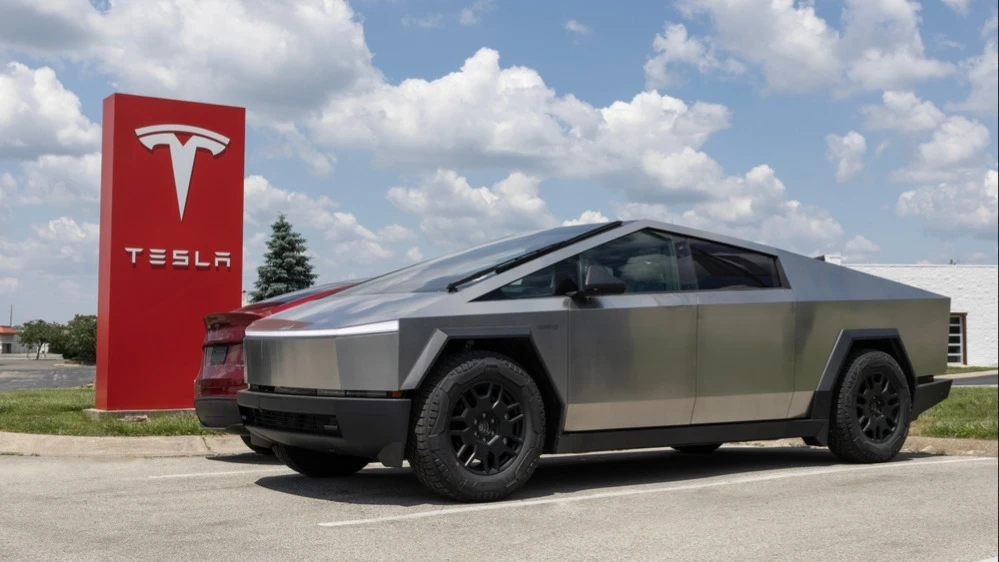Record sales drop in 10 years: Tesla reports another tough quarter
Investors are waiting for news from Tesla on the expansion of the Robotaxi project and the release of a budget car

Electric car maker Tesla disappointed Wall Street for the second quarter in a row, with sales and profits falling. The report was one of the most disappointing in recent years, notes Bloomberg. The agency attributes this to pressure from competitors and negative consumer reaction to the actions of the company's CEO Ilon Musk.
Details
Tesla reported a 16% drop in revenue from its automotive segment in the second quarter, to $16.7 billion. Sales fell for the second quarter in a row, and that didn't come as a surprise to investors: in early July, the company reported a 13% drop in deliveries, to 384,000 vehicles.
At the same time, revenue from the sale of carbon credits fell by 26% (to $439 million), as Donald Trump canceled fines for automakers that do not comply with them. By comparison, carbon credit revenue was $595 million in the first quarter and $890 million a year ago, a figure that is likely to continue to decline, according to Bloomberg.
Revenue from Tesla Energy's energy generation and storage business also fell. However, the company noted growth in its "services and other" segment, which includes its network of Supercharger stations: gross profit rose 17% year over year "driven by increased utilization," according to the report. Tesla added more than 2,900 new charging racks during the year, up 18% from a year earlier. The Supercharger network now includes 7,377 stations worldwide.
As a result, Bloomberg called the quarter the worst in a decade. Total revenue fell 12% to $22.5 billion versus LSEG's forecast of $22.74 billion, wrote CNBC. Adjusted earnings per share (EPS) came in at $0.4, while Wall Street was expecting $0.43. Tesla's second-quarter net income fell to $1.17 billion ($0.33 per share), down from $1.4 billion ($0.4 per share) a year earlier.
After the publication of the reports, the shares of the electric car maker fell in the postmarket by 3% to $322.8. During the main trading session on July 23, the securities added 1%, but lost all growth by the close of the exchange. Since the beginning of the year quotations have fallen by 18%.
What's affecting Tesla's revenue
The brand suffered from the political activity of the company's CEO, Ilon Musk, who last year supported Donald Trump's election campaign. After his election as U.S. president, Musk got a position in the White House, where he pushed for budget cuts, which drew sharp criticism from the traditionally loyal to Tesla left-wing audience, Bloomberg recalls. After Musk publicly supported the German far-right anti-migrant AfD party, a wave of protests against Tesla swept across Europe. Musk left government service in May, but his private company SpaceX warned investors the other day about the risk of his return to politics. After another spat between Trump and Musk, the president promised to deprive the billionaire's company of subsidies and government contracts. The Tesla CEO, in turn, threatened to create his own political party;
Tesla's sales are also affected by competitive pressure, especially in the Chinese market, where local brands are producing cheaper electric cars that have the autopilot feature as part of the standard option package, while Tesla's remains a premium package, CNBC notes.
At the quarter-end conference call, Musk warned investors that Tesla is in for some "tough quarters" as incentives such as the electric vehicle tax credit are being eliminated in the United States.
What Tesla is betting on
The company emphasized that it continues to move forward with the Tesla Robotaxi and more affordable car model projects, which partially reassured investors. In a letter to shareholders, the company said it began assembling the more affordable model in June, with mass production slated for the second half of 2025. At the quarter-end conference call, Musk told investors, that the expected "affordable model" would be a stripped-down version of the Model Y, which could disappoint some investors expecting the Model 2.
Some investors are ignoring the weak quarterly results, betting on Musk's promises to build a future with artificial intelligence, humanoid Optimus robots and autonomous cars.
"If you think of Tesla as just a car company, it was a disappointing quarter," Adam Crisaluffi, founder of Vital Knowledge, wrote in an analyst note that quoted by Bloomberg. - But if you think of Tesla as an AI and robotics giant, your view of its prospects after its second-quarter release is unlikely to change."
Investors are still waiting for more information on the robotaxi's prospects: how quickly the service can scale in Austin, Texas, and enter other markets. Tesla said it intends to improve and expand the service, but did not specify launch dates or regions.
While optimists see the launch of robotaxi tests as a positive signal, in the short term it "will not have a meaningful financial impact," warned analysts at Bank of America, whose note was quoted by CNBC.
This article was AI-translated and verified by a human editor
